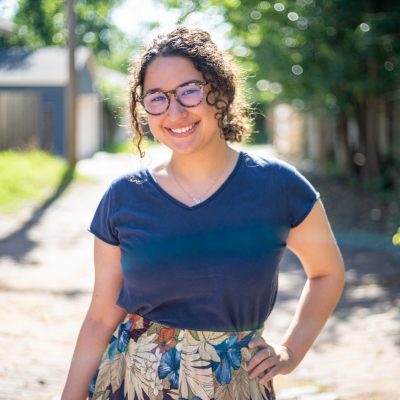Article
In recent years, a globally coordinated backlash against women’s and LGBTQI+ rights has intensified under the banner of so-called “anti-gender movements,” Humanity in Action Senior Fellow Joshua Allen argues.
Bankrolled by far-right organizations in the United States and Europe, and legitimized by a network of think tanks, media outlets, and pseudo-academic institutions, these movements have gained political traction in countries including Hungary, Poland, Italy, and the United States. According to Joshua, their influence is not isolated, but transnational, bolstered by shared strategies, funding, and ideological alliances that span the Global North and South.
Joshua, a doctoral student, was compelled to confront these forces through a project aimed at exposing the inner workings of these movements. The project was born out of a deep concern over the rhetorical power anti-gender actors wield, using the language of “common sense” and “biological truth” to mask violence, restrict rights, and silence dissent. The stakes, Joshua noted, are nothing short of life and death: criminalization of trans lives, curtailed access to reproductive healthcare, and the emboldening of white supremacy in mainstream discourse.
Project Development
The development of the project began with an immersion into the existing scholarship on anti-gender movements. Joshua engaged deeply with the extensive academic literature, building a strong theoretical framework to guide the research. From there, the focus shifted to primary materials: publications and public statements produced by influential anti-gender organizations.
[perfectpullquote align=”left” bordertop=”false” cite=”” link=”” color=”” class=”” size=””]Joshua’s initial research process revealed a wealth of under-examined connections.[/perfectpullquote]
This initial research process revealed a wealth of under-examined connections. “My goal was to show that what appeared to many to be a spontaneously generated grassroots discourse was in fact a product of coordinated efforts by anti-gender actors who sought to capitalize upon a salient media story,” Joshua explained.
Joshua originally intended to produce a series of shorter public articles throughout the year. However, the first article organically expanded into a much longer and more detailed piece than expected. The ultimate result was a hybrid project that bridges accessible public engagement with academic research.
Project Implementation
Joshua’s project unfolded in two interconnected phases.
[perfectpullquote align=”right” bordertop=”false” cite=”” link=”” color=”” class=”” size=””]The online outrage surrounding Khelif was not an isolated incident.[/perfectpullquote]
The first was a long-form article published on Substack, which analyzed the gendered and racist backlash against Algerian boxer Imane Khelif during the 2024 Summer Olympics. The piece revealed that the online outrage surrounding Khelif was not an isolated incident, but rather a coordinated attempt by anti-gender actors to manipulate public discourse and reinforce exclusionary ideologies under the guise of spontaneous grassroots concern.
The second phase took a more academic form. Joshua wrote two papers that traced the networks connecting U.S.-based anti-trans parent groups with a cadre of discredited psychologists and psychiatrists. These individuals, though dismissed by much of the scientific community, continue to be cited in policy debates as sources of legitimacy for regressive anti-trans legislation, particularly targeting trans youth.
Joshua has presented this work in academic settings and anticipates further dissemination as the research becomes a foundational element of ongoing PhD studies.
Lessons Learned
One of the most profound challenges Joshua encountered was emotional. Spending long periods immersed in hate-filled rhetoric was mentally and physically exhausting. By the sixth month of the project, Joshua took a deliberate break, recognizing the toll the material was taking.
[perfectpullquote align=”left” bordertop=”false” cite=”” link=”” color=”” class=”” size=””]This work is better done in community with others.[/perfectpullquote]
“Though I knew what I was getting into,” Joshua shared, “I hadn’t anticipated how deeply this work would live in my body.”
The key lesson? Don’t do this work alone. “This work is better done in community with others,” Joshua asserted.
Next Steps
While Joshua has no immediate plans for additional public articles, the research will continue to evolve within the broader framework of doctoral studies. The academic papers and public essay serve as a foundation for future inquiry into the strategies, language, and transnational alliances that define the anti-gender movement.
Joshua encourages others to take action in their own spheres: whether by organizing, protesting, voting, advocating for inclusive policies, or supporting queer, trans, BIPOC, and migrant friends and communities.
Updated June 2025




